The Advantages Of Using A Weighted Blanket For Children
The Advantages Of Using A Weighted Blanket For Children
If you've enjoyed the benefits of a weighted blanket for yourself, it might be time to consider acquiring one for the kiddo in your life!
A good night's sleep is just as crucial for children as it is for adults. Weighted blankets have been used therapeutically to help children with anxiety, ADHD, and other sensory processing disorders, but they can also benefit any youngster who wants a better night's sleep.
Nothing beats having your child wake up well-rested, rejuvenated, and in a fantastic attitude to start the day, as any parent who has been awakened up by a cranky youngster will confirm. (Not to mention, if your child doesn't sleep through the night, you probably don't either.)
The benefits of a good night's sleep are the same for our kids as they are for us adults: improved focus, mood, energy, and even eating choices (when we're sleep-deprived, we're far more likely to prefer bagels over a healthy breakfast!) A well-rested child will perform better in the classroom, at sporting events or extracurricular activities, and in social situations with friends. If you've enjoyed the benefits of a weighted blanket for yourself, it might be time to consider acquiring one for the kiddo in your life!
Anxiety Reducing Supplement
If you're the parent of an anxious child, you may feel helpless at times about how they're feeling and what you can do to help them. Many parents, especially those with small children, struggle with the decision to put their children on medicine. The benefit of utilizing a weighted blanket to help a child with anxiety is that it is a simple, non-invasive method that can be tried at home without having to go to the doctor.
But how does it work in practice?
Deep Touch Pressure (DTP) Therapy has been proven connected to the benefits of a weighted blanket. DTP entails applying uniform pressure on the body, which is usually done by squeezing, embracing, or forceful holding. A best-weighted blanket gives you the same sensation by uniformly dispersing weight to provide a "grounding" effect that helps you feel less worried or stressed.
The true science underlying this process has to do with our bodies' inherent hormones. A hug (or, in our case, a thick, weighted blanket) generates a surge in serotonin, our body's happiness hormone. DTP children get a rush similar to that which you receive when you get a bear hug from a bestie. Children with DTP also experience a surge of serotonin, which might naturally help them relax during stressful situations.
Serotonin has the advantage of spontaneously converting to melatonin, which is our body's sleep hormone. This natural conversion can help your child fall asleep faster and stay asleep longer at naptime or bedtime.
There are also some natural approaches to help your youngster deal with his or her anxiousness. Some psychologists suggest getting your child a coping kit, which could contain a beloved toy, a stress ball to squeeze, a weighted blanket for at-home use, or a weighted lap cushion or vest for use at school or in the car.
Help for ADHD
A weighted blanket has been demonstrated to help children with ADHD calm their hyperactive bodies and minds, which can be especially beneficial for concentration during the school day. Children with ADHD who wore a weighted vest that was 10% of their body weight improved their attention span, speed of processing and responding, and had fewer off-task or out-of-seat activities and fidgeting, according to a 2014 study.
The fact that this study used a crossover design, which meant that each child performed the activities with and without the weighted vest and acted as their controls, added to the study's strength. This was also one of the bigger studies on the use of weighted blankets for ADHD, with 110 children participating. Children with ADHD who wore a weighted vest experienced an increase in on-task conduct, according to another study with a smaller test sample.
More Restful Sleep
Weighted blankets can help children and adults have a better night's sleep. Again, this is due to Deep Touch Pressure, which serves to relax the body, similar to how you feel after receiving a deep tissue massage. When the body is under stress, it produces more serotonin, a hormone that improves mood and reduces anxiety. Furthermore, serotonin is a precursor to melatonin, the sleep hormone of choice. Rather than popping melatonin tablets, consider having your child naturally make more of it while sleeping with a weighted blanket.
The advantages of greater sleep for children are undeniable. According to studies, well-rested youngsters perform better in school, have better mental health, and are less likely to become obese or develop high blood pressure. Another study indicated that depriving children of one hour of sleep every night for five nights made them more frustrated during the school day, irritable, and had difficulty paying attention in class.
If your youngster is more easily frustrated, he or she may not be able to learn as much as they could if they merely received an extra hour of sleep. If your child spends an hour tossing and turning before falling asleep, a weighted blanket can be just the thing to get their little bodies ready for snoozin' in no time!
Quick Tips: What Should the Weight Be?
The standard rule for most adults is that the blanket should be roughly 10% of their body weight. Some studies suggest that children should be given weights ranging from 12-15 percent of their body weight. Check to see what your child is comfortable with, and if it feels good, increase the weight.
If blankets are in-between weights, it's usually fine to add a few pounds, especially as your youngster approaches adolescent and teen years. Weighted blankets should never be used on babies or toddlers under the age of five, regardless of how agitated they are or how poorly they sleep!


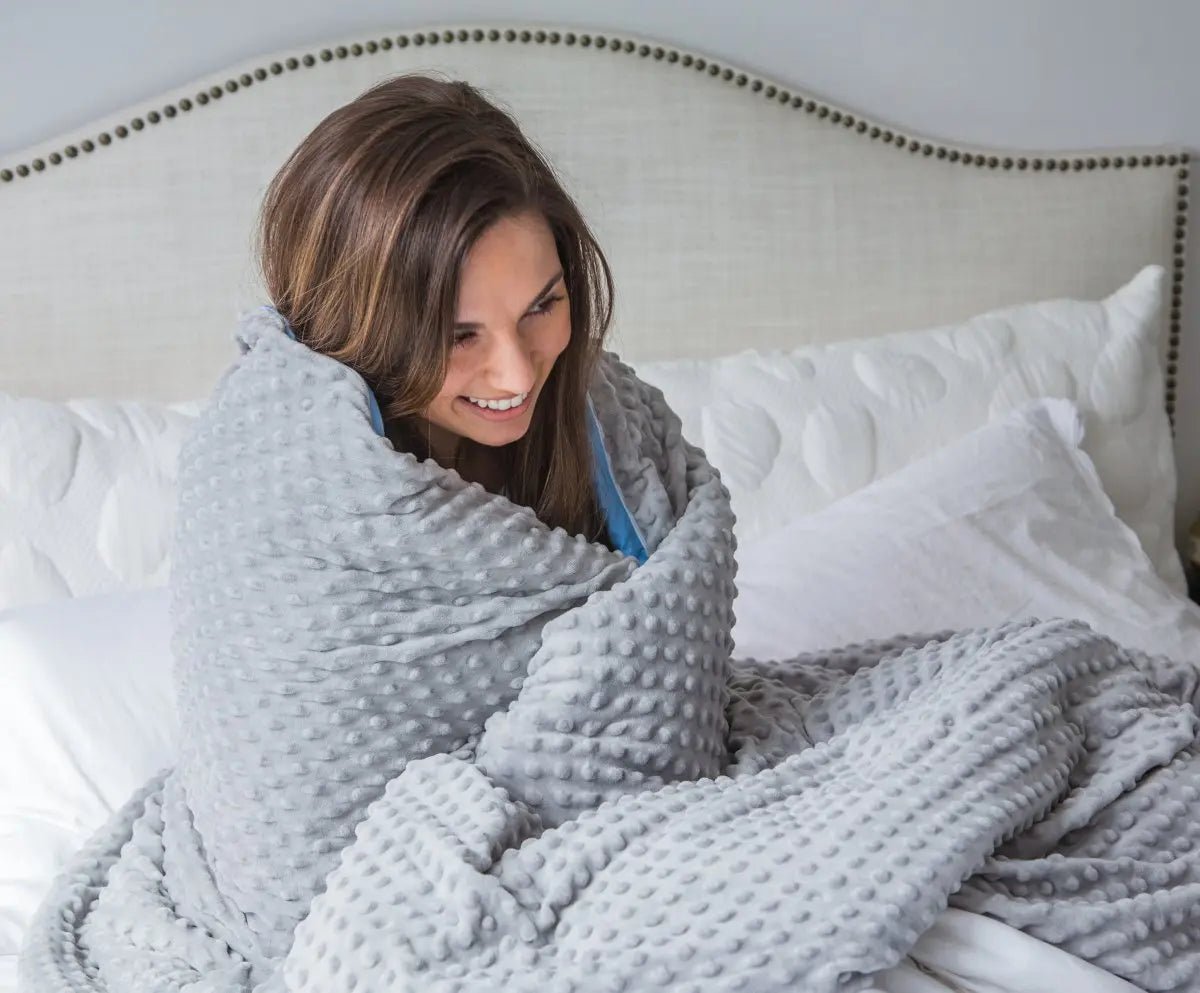
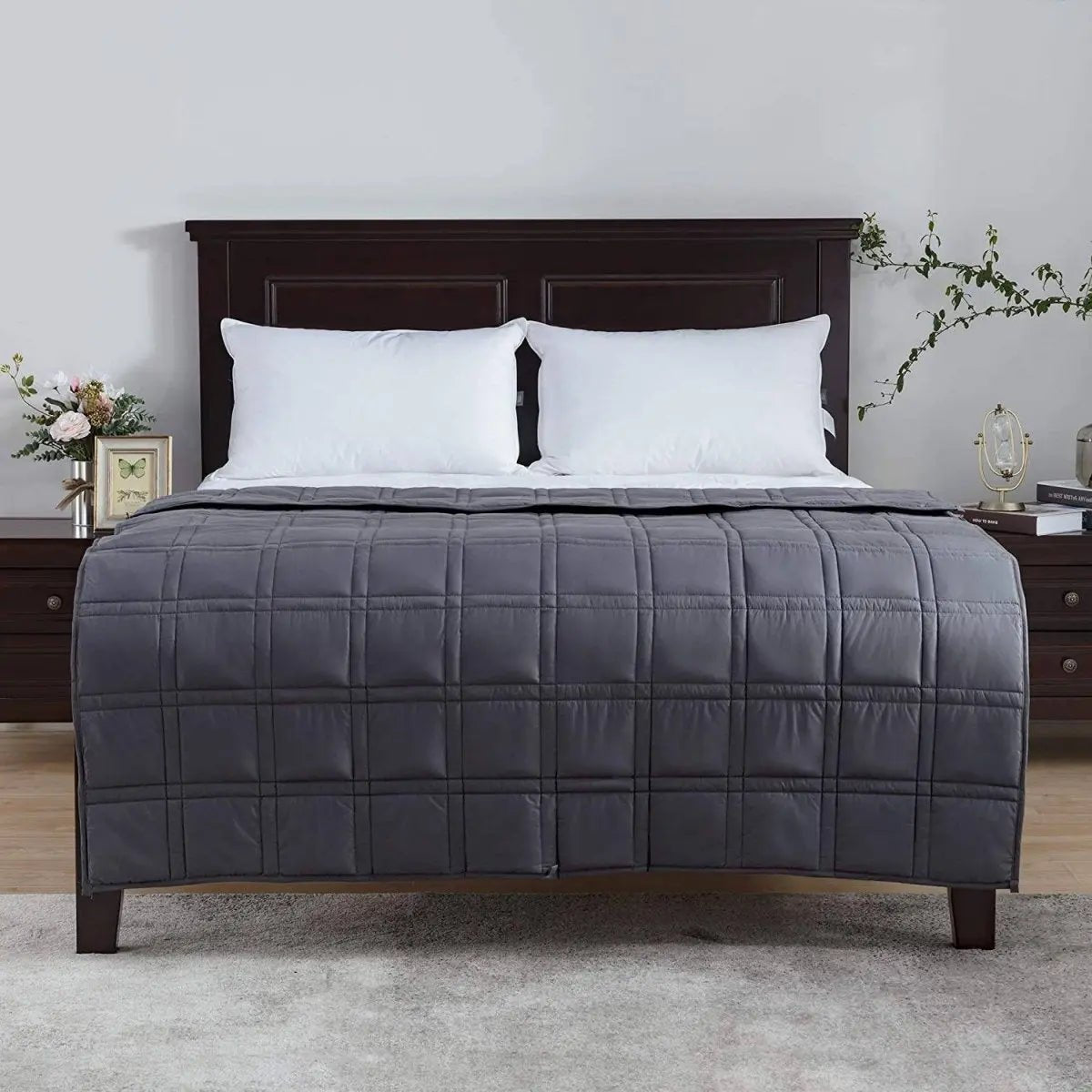
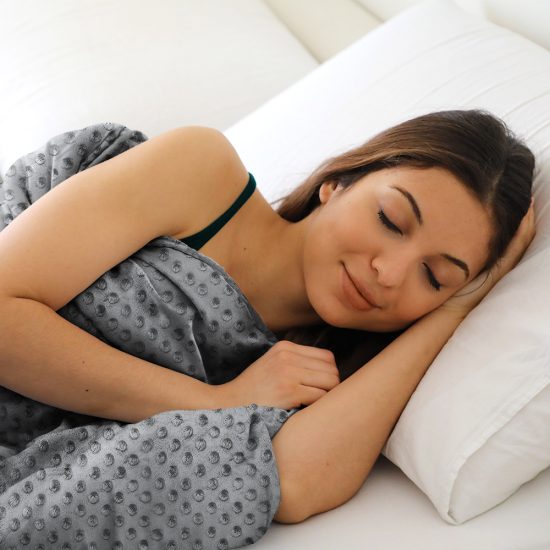
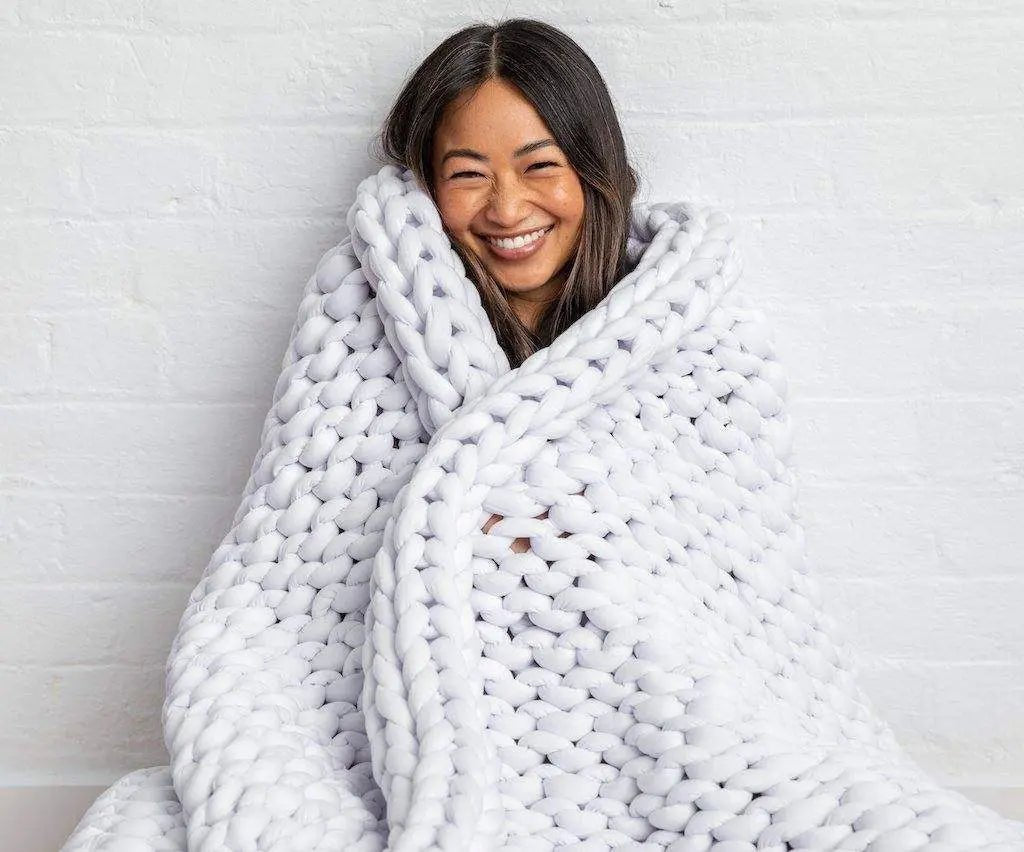
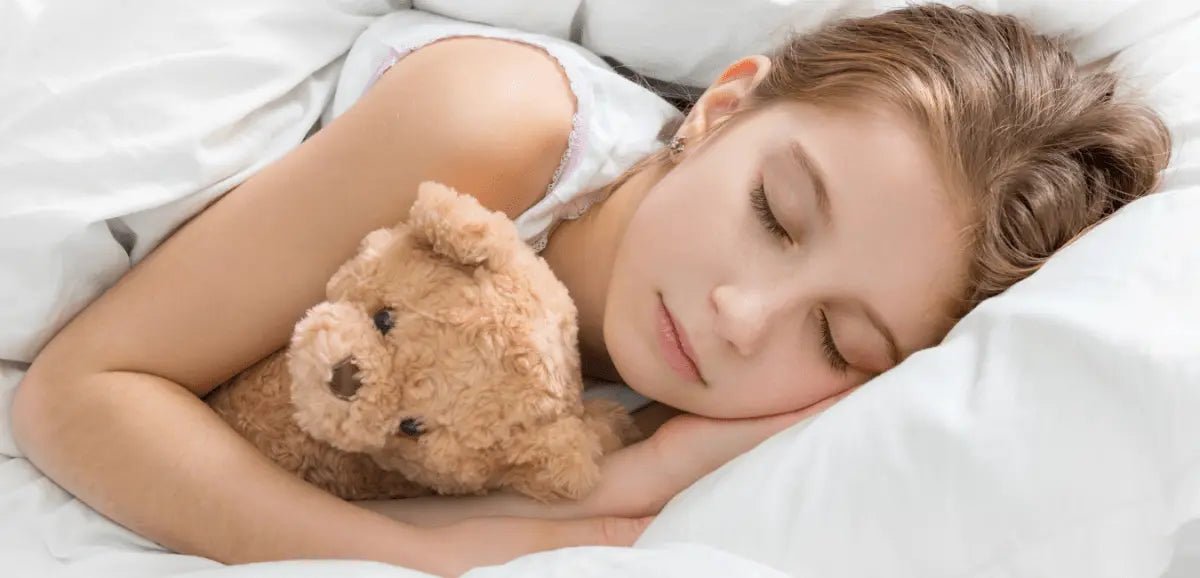





Leave a comment